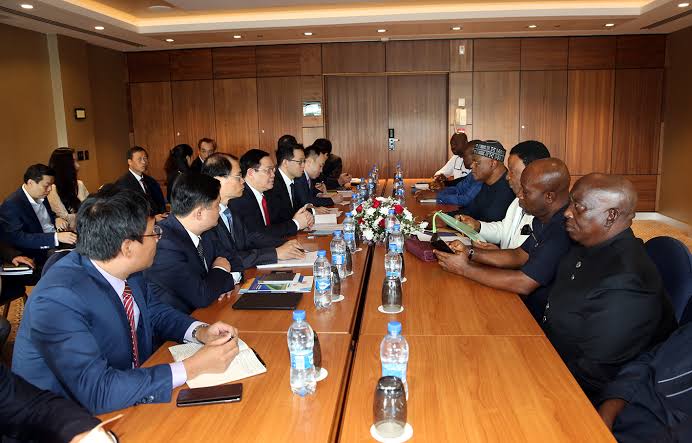The Federal Government on Tuesday rejected a request by Vietnam to bring rice into Nigeria.
APC said that accepting the plea would further hurt the country’s economy. Instead, the FG asked Vietnamese investors to build rice processing mills in Nigeria, given the country’s large arable lands and potentials in rice farming.
Sunday Akpan, the Permanent Secretary in the Ministry of Industry, Trade and Investment said Vietnam was among the top five rice producers in the world. He said this at the Nigeria-Vietnam Trade and Investment Forum (NVTIF) in Abuja.
The Prime Minister of Vietnam, Vuong Hue requested the support of the ruling party for the Asian nation to export subsidized rice to Nigeria. This was after The Deputy Prime Minister of Vietnam, Vuong Dinh Hue, had on Tuesday made the appeal through the ruling APC when he led a five-man delegation to meet the Adams Oshiomshole-led National Working Committee (NWC) of the party.
Speaking through an interpreter, Hue said, “We can offer concessional import rate on rice, while you are working on self-sufficiency.
APC Chairman, Oshiomhole, had told the visiting deputy prime minister that Nigeria would not accept such demand from Vietnam, advising the country to rather secure land and invest in rice production in Nigeria.
Oshiomhole said, “If government allows importation of food, our youths will become idle; that will lead to unemployment. We want to promote food security. Rather than importing rice from Vietnam, your (Vietnam) farmers can take advantage of our arable land. We have to do that not only to protect farmers, but to tackle food security,”
Read also: Border closure, good for Nigeria’s growth
Prince Adetokunbo, who is the President of The Abuja Chamber of Commerce and Industry (ACCI) said Nigeria mainly exported raw materials, especially cashews, while imports were mainly mobile phones, electronics, textiles, plastics, chemicals and machinery parts.
Kayode said, “Nigeria and Vietnam must devise more areas of economic cooperation in important sectors like oil and gas, maritime, mining, construction, power, agriculture, cement, transportation, engineering, telecommunication and education. This is in order to add maximal value to our economies on a win-win basis and to ensure mutual prosperity.”

